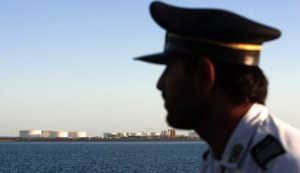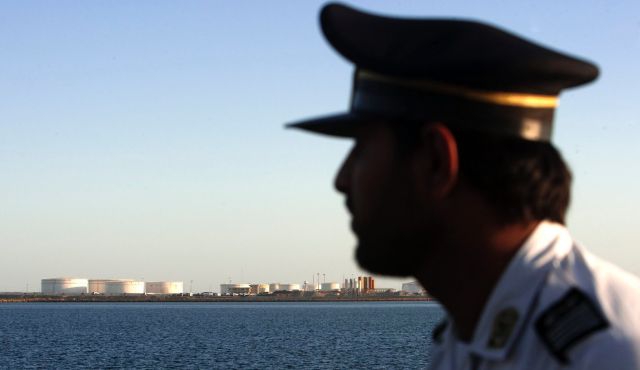 They have become a popular medicine, but no one can say if the sanctions drug is effective at foiling Iran's nuclear plans.
They have become a popular medicine, but no one can say if the sanctions drug is effective at foiling Iran's nuclear plans.Another round of sanctions has begun. The U.S. Senate approved, with a majority, a bill that imposes penalties on companies that export iron, aluminum and graphite to Iran. These materials are essential for building ships, and also to the Iranian energy industry. If the bill makes it through Congress, then these industries will be added to the list of those that contribute to nuclear proliferation.
It is difficult to predict what effect the new sanctions will have, but it seems that they were mainly meant to harm the Iranian effort to build oil tankers and oil storage facilities. Due to international sanctions, Iran's oil storage crisis has reached threatening proportions. It exports between a million and a million-and-a quarter barrels of oil a day compared to 2.4 million per day before the sanctions. Iran is storing this excess oil in two large sites: Lavan Island and Kharg Island, as well as on a large number of oil tankers, some of which are anchored in the Persian Gulf, and some off the coast of Malaysia.
In total, Iran is able to store around 25 million barrels, and once its new reservoir has been completed in 2013, it will be able to store another 8.1 million barrels -- around three days' worth of production. Although trade in oil that has been stored is one of the most lucrative branches of the industry, once large amounts are accrued without being sold, Iran will have to decide whether to reduce the production in its wells or to greatly increase its storage capabilities. While reducing production output in a reasonable option in the short term, it is likely to cause long-term damage to the oil wells and drilling equipment.
An even bigger problem than storage is the growing gap between the expected revenues upon which the Iranian budget is based, and the actual revenues. Iran's budget relies upon an underestimation of $85 per barrel, and while the price was higher than $120 a barrel, Iran was able to make up for the difference by using its massive foreign exchange reserves. However, a sales decrease of half and the drop in global oil prices will force Iran to find new sources of income.
Ostensibly, such a source can be found in Iran. This source is income tax, which up until now has only been seven percent of GDP. On paper, Iranians must pay income tax of between 13 and 15 percent but when half the population is exempt from tax -- including those who know the loopholes and high-income institutions such as the Revolutionary Guards, who are exempt from paying tax -- it is doubtful that President Mahmoud Ahmadinejad will find the courage and ability to change the policy of non-collection.
Two weeks ago, the president received another slap in the face in parliament when it decided to freeze the second stage of the economic reform program, which included among other things a significant reduction in the volume of subsidies and an increase in the price of fuel to citizens. It's not that members of parliament don't understand Iran's difficulties and the need to reduce government spending; they just dont believe that Ahmadinejad will take advantage of the savings generated in the appropriate manner. On top of this, there are the preparations for presidential elections in six months, and several prominent members of parliament do not want their names to be linked to economic cuts.
There is no doubt that the sanctions harm the people of Iran, but there is also no doubt that the Iranian government's economic conduct over the past seven and a half years has undermined its ability to better prepare itself for sanctions. It is enough to look at the collapsing tea industry which produces only 20,000 tons compared to 65,000 tons in previous years, because the majority of Iran's tea is imported from other countries in order to understand the failures of the economic policies that do not depend on sanctions.
It's not only the United States and Israel who are waiting for the end of Ahmadinejad's tenure. Iran's supreme leader, Ayatollah Ali Khamenei, and the heads of the leadership in parliament would also be happy to advance the date of the election. The current dilemma for Western nations is how to correctly manage the policy of sanctions: whether to wait until Ahmadinejad is replaced, or to continue to impose more sanctions; whether to start direct dialogue with Iran now, or to wait -- without knowing how long until the pressure has an even greater effect.
These questions do not have answers that can be known in advance; not in Iran, and not in the U.S. If in Iran, they already recognize that Ahmadinejad is the problem, in Washington Congress is still competing with the president over who will set the policy on Iran. Sanctions have become a popular medicine, but no one can say if the drug is effective or not.
By Haaretz
The Iran Project is not responsible for the content of quoted articles.











